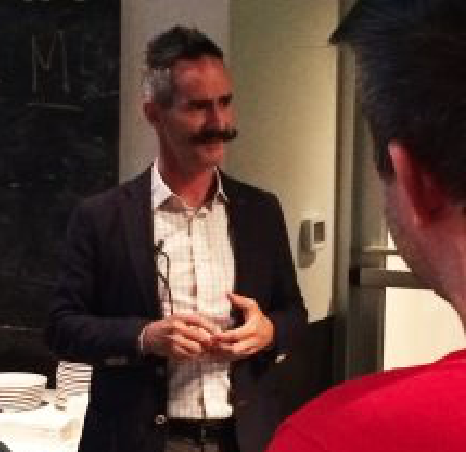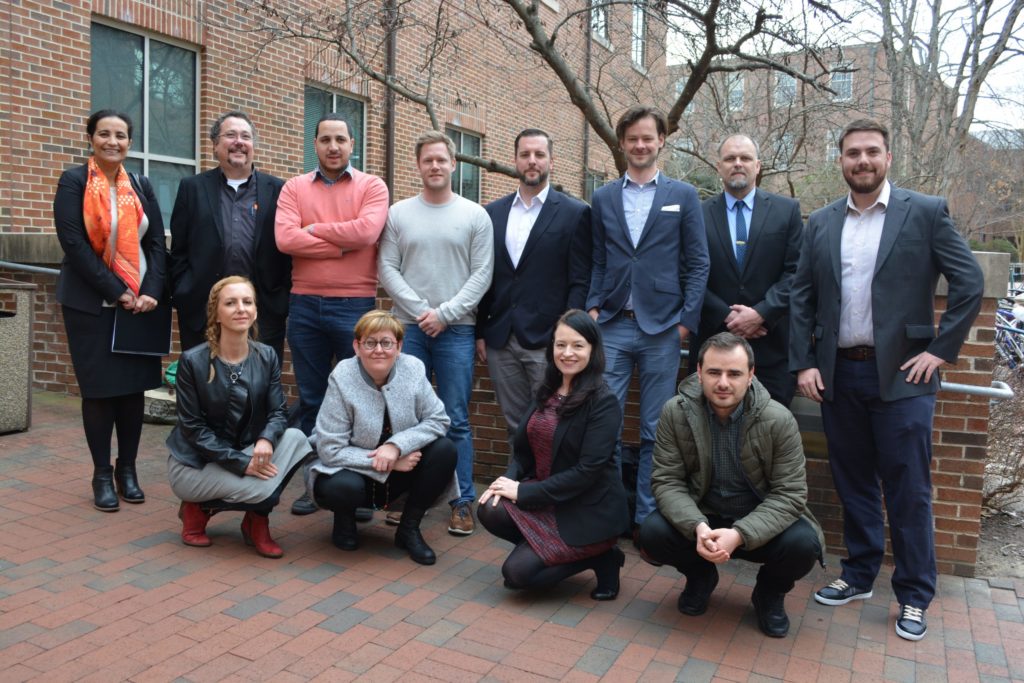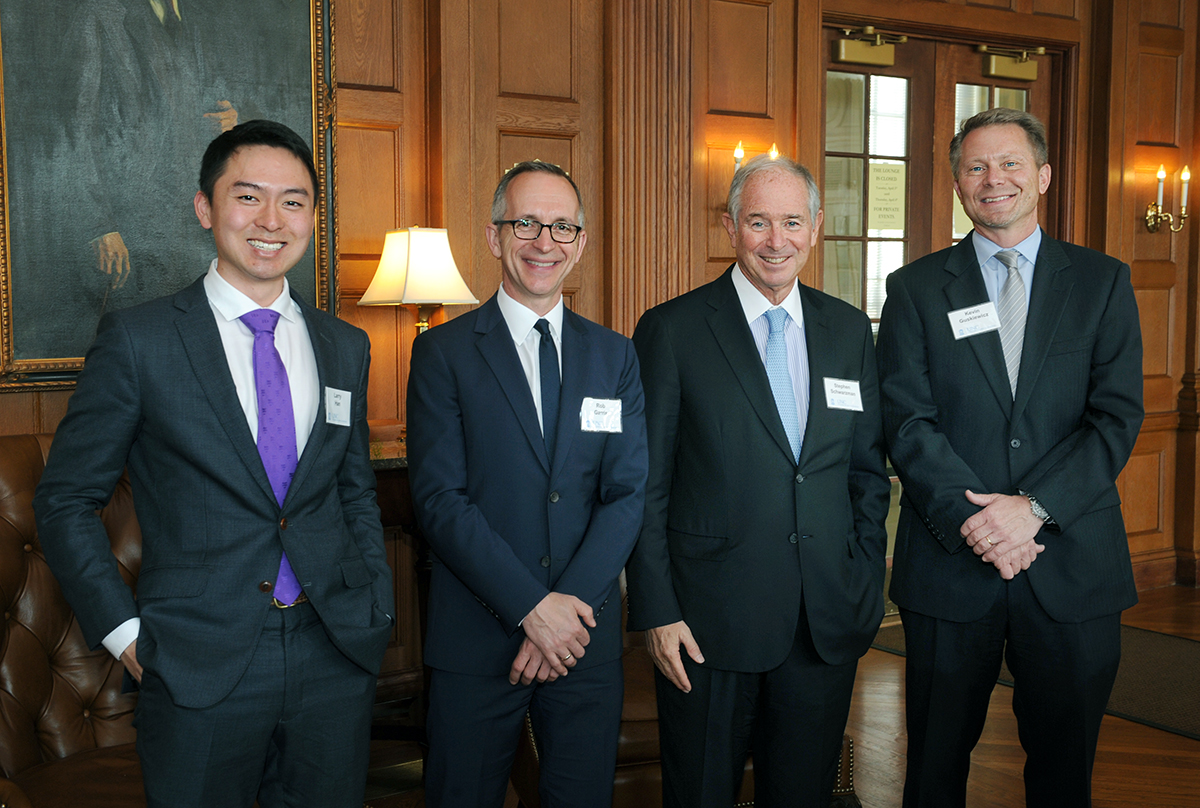
Stephen Schwarzman, Chairman, CEO and co-founder of Blackstone, one of the world’s largest investment firms, visited UNC-Chapel Hill on Wednesday and talked leadership with an invited group of student leaders.
In a discussion moderated by Kevin Guskiewicz, dean of the College of Arts & Sciences, Schwarzman shared his views on leadership versus management, creating a culture of success in an organization, and the inspiration behind his creating the Schwarzman Scholars program in 2016.
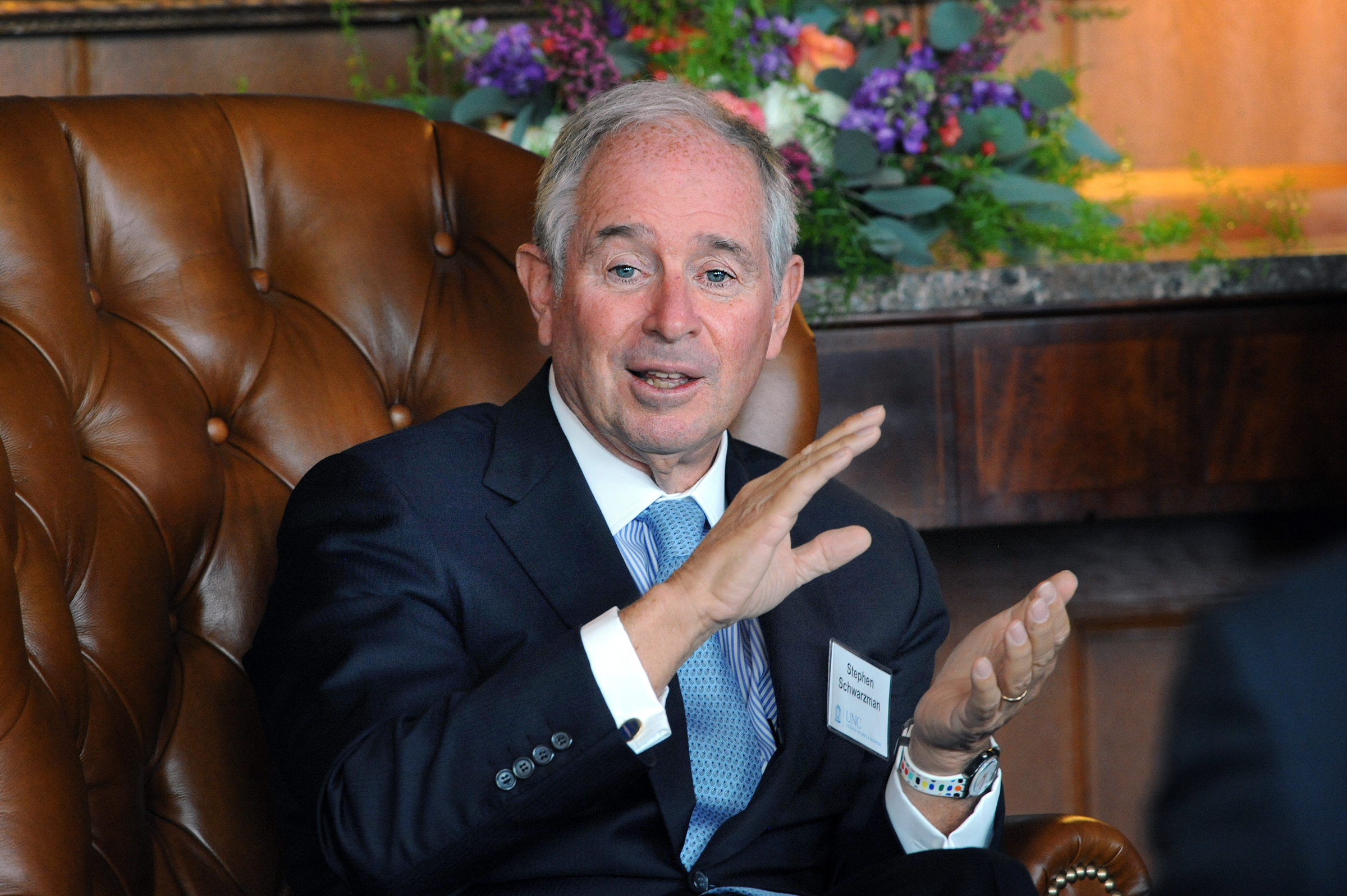
Schwarzman Scholars is a highly selective program modeled after the Rhodes Scholars program. Recipients attend a one-year master’s program at Tsinghua University in Beijing designed to prepare them to become the next generation of global leaders.
In response to a student’s question about the role of liberal arts in creating leaders, Schwarzman said his classic liberal arts education at Yale University profoundly shaped his career. He recalled taking a course on culture and behavior that was particularly insightful and taught him how to read people.
“I’m terrible at math. … All I know is how people react to stuff. If you know how people will react, you will always know the answer,” said Schwarzman.
Also attending the event were two Carolina alumni with ties to the program — Robert Garris, Schwarzman Scholars’ global director of admissions who received his master’s and Ph.D. in history, and Larry Han, a recent UNC graduate. Han was a Phillips Ambassador in 2014, graduated with a degree in biostatistics in 2016, and was named a Schwarzman Scholar that same year, in the inaugural class of recipients.
The approximately two dozen students attending the event had already distinguished themselves in some way at Carolina. Some were serving in student government, others were Morehead-Cain scholars, Kenan scholars, Honors Weir fellows, Phillips Ambassadors, or students involved in the College’s innovative Shuford Program in Entrepreneurship, among other distinctions.
“Can leadership be taught?” Guskiewicz asked Schwarzman to kick off the conversation.
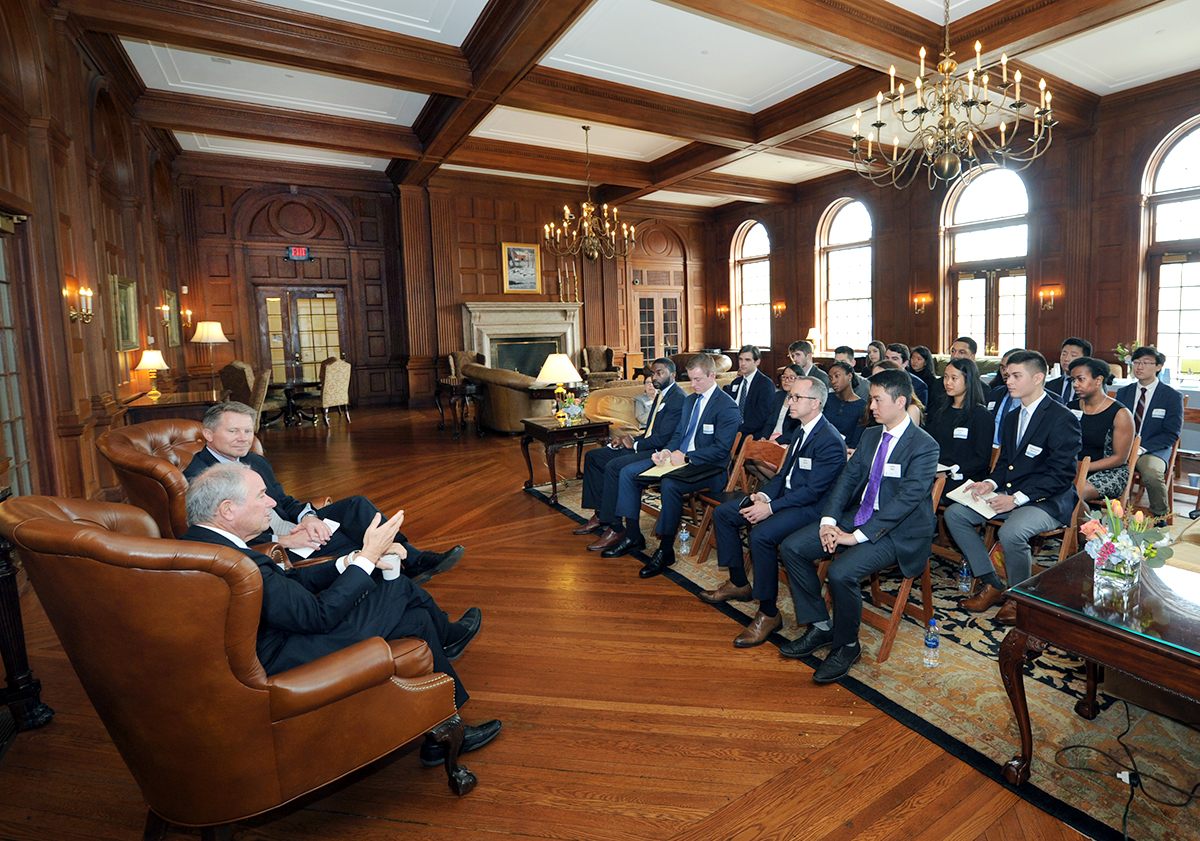
“Management can be taught. That’s a skill no one is born with,” said Schwarzman. “In terms of leadership, you can refine your skills, but you have to be interested. You have to want to change something. You have to want to have an impact. You have to want to make something better.”
Guskiewicz also asked Schwarzman to elaborate on his view that the Schwarzman Scholars program was designed to create change on a global scale. Schwarzman, who has been a resource to multiple presidents, including on global and trade matters, started his answer by noting that people the world over have built-in biases about other cultures. He recounted how he has been in meetings abroad in which someone will make a stereotypical characterization about Americans.
“Usually, there’s someone at the table who says, ‘No, I went to school in the U.S. That’s not how it works,’” he said. The cultural gap is bridged through exposure to other cultures.
Schwarzman said he wants to do the same by sending students from the United States and other countries to China, to familiarize themselves with that nation’s culture and government. He personally donated over $100 million to launch Schwarzman Scholars and is leading a campaign to raise $500 million to fully endow it.
Han told the students that one of the most unexpected elements of the program was the opportunity to interact with Chinese students who were destined to be the future leaders of the country. “I met with students who were going to be mayors at age 27,” he said.
Learn more about applying for the Schwarzman Scholars Program.
By Geneva Collins

